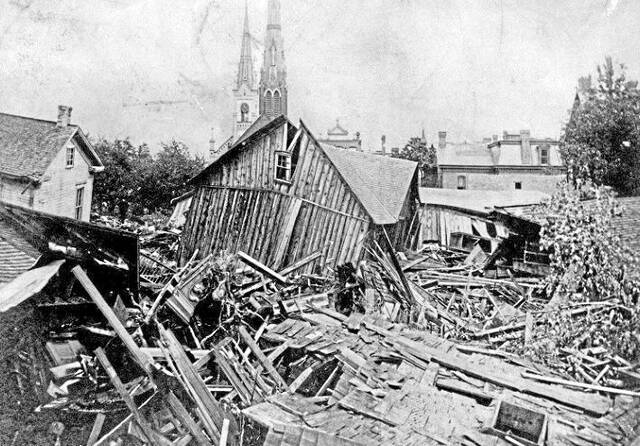Tragedy seldom unifies Americans today.
Every year, horrific crises induce tremendous suffering. Most are privately tragic, affecting only those directly harmed and their immediate relations.
A small number, though, become politically notorious and, therefore, publicly tragic. Natural disasters, school shootings, terrorist attacks and economic crises can become public tragedies. Sexual assaults — primarily of women — by abusive executives and other men in positions of power recently emerged as a public tragedy, as has police brutality against African Americans, which has sown political unrest across the United States.
Even the covid-19 pandemic, a seemingly natural disaster, quickly transitioned into a public tragedy as deaths mounted and a pervasive sense of mismanagement, distrust and blame galvanized the public on the political left and right.
Events such as these represent a change in how tragic circumstances are cast and how they are responded to in the United States and beyond. Public tragedies are heartrending events that gain widespread public attention. They involve stylized public expressions of shock, outrage, social blame, claims of victimization, protest and memorialization.
My book, “After Tragedy Strikes,” explores the recent proliferation of public tragedies as a distinctive kind of political crisis that has produced far-reaching positive and negative effects on social and political relations in the 21st century.
As a sociologist who studies risk, politics and social movements, I didn’t set out to evaluate the authenticity of claims made in public tragedies. Rather, through comparison, my goal was to understand better why some of these events exert tremendous influence, while other, objectively similar, traumas do not.
Public tragedies have contributed to the increasing political polarization and the sectarian tone of political rhetoric today. One question I sought to answer in my book is why?
Old way: ‘God, fate, bad luck’
The short answer is that the public’s understanding of tragic events has changed.
Well into the 20th century, tragedies were mostly explained differently than now. Explanations often referenced forces such as God, fate, bad luck, blameless accidents or, in line with the U.S. liberal political tradition, individual responsibility. Even when suffering was extreme and known to have been caused or worsened by the actions or omissions of other persons, explanations of what caused it typically took these forms.
Take Pennsylvania’s Johnstown Flood of 1889, in which more than 2,200 people and much of the city were swept away by a deluge after a dam failed. The wealthy South Fork Fishing and Hunting Club had built the dam to create a private lake. Despite the failure due to poor construction and maintenance, neither the club nor its wealthy members would be held responsible. In the most prominent legal case brought against the club, the final verdict attributed the tragic deaths and destruction to an act of God.
Today, this explanation would be indefensible.
New way: ‘government, industry, culture’
After a tragedy, accounts now focus on assigning blame. They also typically center on social blame, in which societal institutions such as the government, industry, civil society and even American culture are held responsible.
Social blame attributes harm to social forces, not individuals or God. And because some group or aspect of society is blamed, public tragedies involve political conflict.
The public perception of trauma and loss and its underlying causes has, therefore, changed over time.
In an earlier era, Americans often justified hardship because it reflected the sacrifice necessary to get ahead. Now, a shift in sentiment reflects a change in view. Americans now focus on unjustified hardship caused by society. This reflects a cultural shift from a progress-centered worldview toward a risk-focused one.
As Americans have become more aware of risks, they increasingly view them as reflecting political choices.
Whether the issue is climate change, energy sources, guns, sexual harassment, discrimination, policing, abortion or even free speech, these are now understood as involving decisions regarding risks that will benefit some and victimize others.
Politically, these have become zero-sum disputes, leading to political polarization among Americans and social distrust of American institutions.








